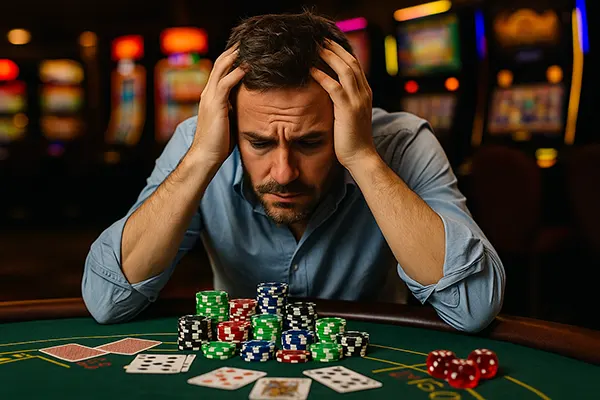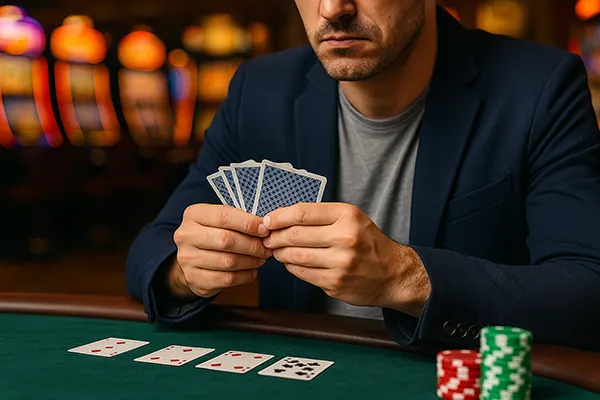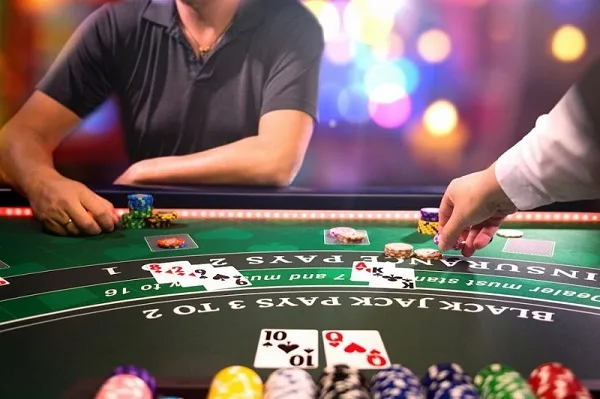
Psychology of Loss: How Players Recover After Major Setbacks
Large gambling losses can trigger intense emotional responses, often combining stress, disappointment, and even shame. These moments challenge not only a player’s financial situation but also their mental resilience. Understanding the psychological processes involved and applying evidence-based recovery strategies is essential for minimising harm and rebuilding stability.
Emotional Impact of Significant Losses
The initial response to a major gambling loss often involves shock and disbelief. Many players replay the event in their minds, seeking to understand what went wrong. This reaction is tied to the human tendency to seek closure, yet it can also keep individuals trapped in a cycle of regret if not addressed constructively.
Over time, emotional responses can escalate into frustration, anxiety, or even depression, especially if the loss affects financial security or personal relationships. Clinical studies in 2024–2025 have shown that prolonged rumination over losses is linked to higher stress hormone levels, which can further impair decision-making abilities.
Another layer of the emotional toll comes from the stigma associated with gambling losses. Individuals may hesitate to share their experiences, fearing judgement or misunderstanding, which can lead to isolation and delay the recovery process.
Recognising and Processing Emotions
Accepting emotions as valid and normal is a crucial first step towards recovery. Mental health professionals recommend mindfulness-based techniques to acknowledge feelings without letting them dictate behaviour. Guided breathing exercises, journaling, or speaking with a trusted friend can help release emotional tension and prevent it from becoming overwhelming.
Structured therapy, such as cognitive behavioural therapy (CBT), remains one of the most effective tools for identifying harmful thought patterns and replacing them with healthier coping strategies. In 2025, several gambling support organisations have integrated CBT into their free recovery programmes.
Importantly, recognising emotional triggers early allows players to respond proactively—whether by taking a break from gambling activities, adjusting spending limits, or engaging in non-gambling hobbies that restore balance and self-worth.
Rebuilding Financial Stability
Beyond the emotional impact, significant losses can leave a lasting mark on personal finances. Recovery requires a clear assessment of one’s financial situation, prioritising essential expenses, and developing a realistic repayment plan if debts are involved. This process demands discipline and transparency, often best achieved with professional financial guidance.
Financial advisers specialising in gambling-related debt can provide personalised strategies, such as restructuring repayments or consolidating loans. In 2025, many countries have expanded access to debt relief services for individuals affected by gambling, aiming to reduce the risk of long-term insolvency.
While immediate restitution of funds is rarely possible, steady and consistent actions—such as building a savings habit, even in small amounts—can help restore a sense of control and confidence over time.
Practical Steps for Financial Recovery
Creating a written budget that prioritises necessities over discretionary spending is a foundational step. This budget should be reviewed regularly to track progress and ensure accountability.
Where possible, automating savings or debt payments removes the temptation to spend impulsively and ensures consistent financial progress. Modern banking apps in 2025 offer integrated tools for setting spending alerts and locking access to certain transactions, which can be especially helpful for recovering players.
Additionally, exploring alternative income sources—such as part-time work, freelance projects, or selling unused assets—can accelerate financial stability while also boosting self-esteem through productive engagement.

Developing Long-Term Resilience
True recovery after significant losses involves more than regaining financial footing—it requires developing long-term resilience to prevent future setbacks. This resilience is built through a combination of emotional awareness, healthy lifestyle habits, and strong support networks.
Establishing a balanced daily routine, including regular exercise, sufficient sleep, and social interaction, supports mental well-being and reduces reliance on gambling as a coping mechanism. In 2025, research continues to confirm the link between physical health and improved emotional regulation.
Support networks, whether family, friends, or peer groups, provide encouragement and accountability. Many players benefit from joining recovery communities, both in-person and online, where shared experiences foster mutual understanding and motivation.
Preventing Relapse
Relapse prevention starts with recognising early warning signs, such as increased gambling-related thoughts or sudden urges to place bets. Setting firm personal rules—like excluding oneself from gambling venues or using voluntary blocking software—can create protective barriers.
Ongoing education about gambling risks is also vital. Understanding the mathematical nature of odds and the unpredictability of outcomes reinforces the reality that gambling should never be seen as a reliable source of income.
Finally, celebrating milestones in recovery, no matter how small, reinforces positive change. Whether it’s paying off a portion of debt, reaching a savings goal, or maintaining gambling-free months, these achievements serve as powerful reminders of progress and capability.





